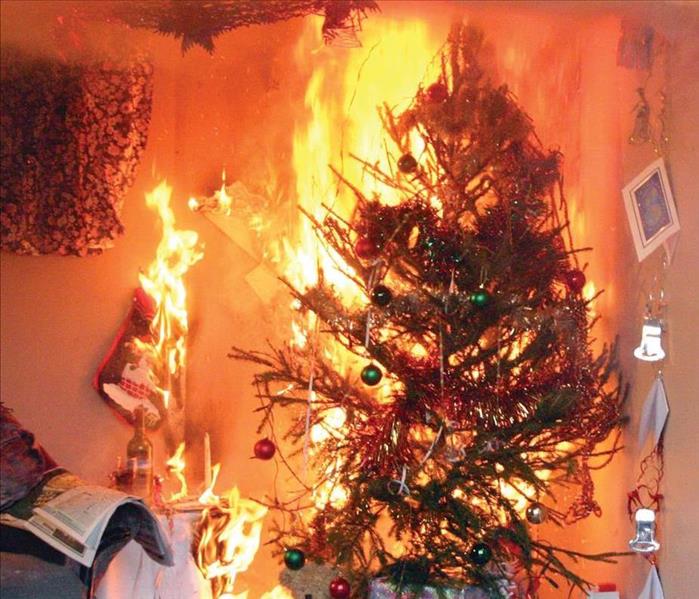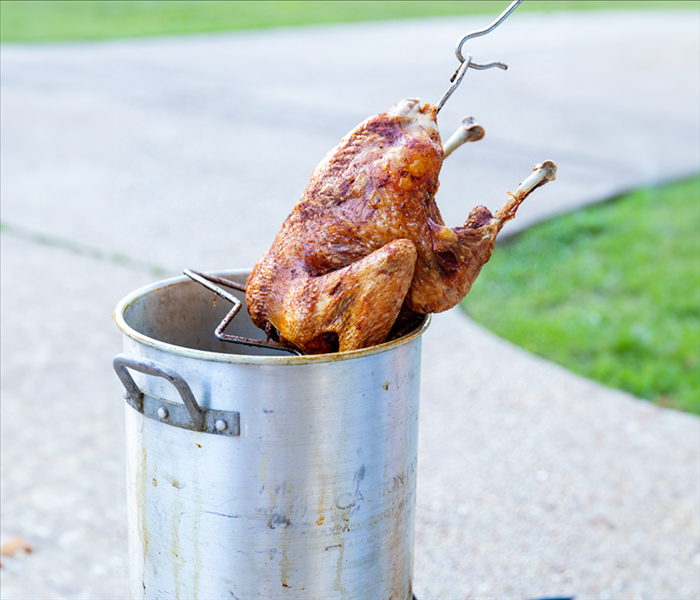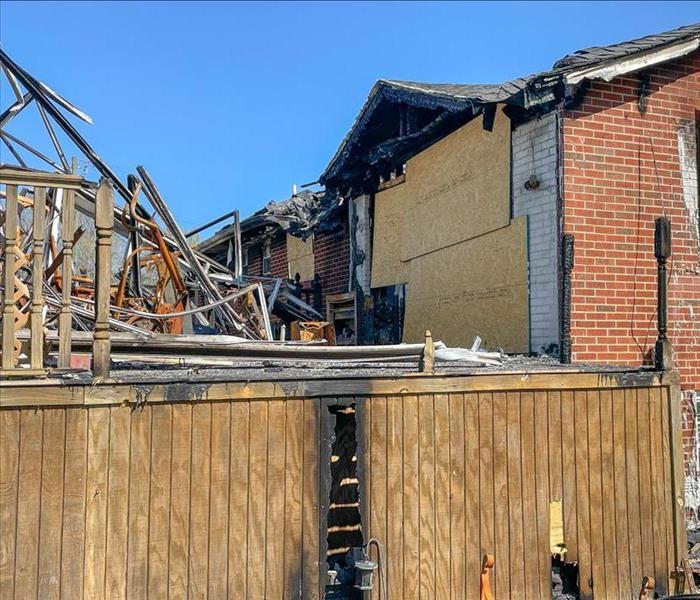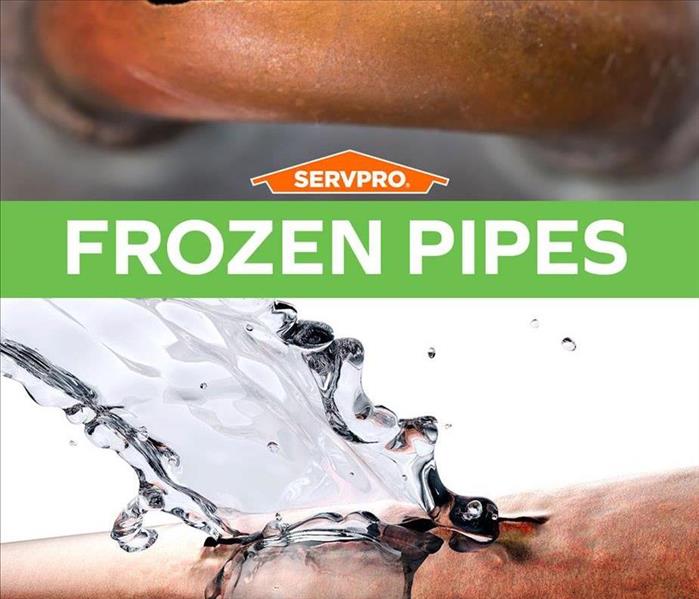Recent Posts
How to Avoid Fire Damage to Your Home During Dry Seasons
1/20/2025 (Permalink)
Dry seasons can be a dangerous time for home fires. The combination of dry weather, strong winds, and low humidity can create the perfect conditions for wildfires to spread quickly. In addition, many people use fireplaces and other heating sources more often during the dry season, which can also increase the risk of fire.
There are a number of things you can do to protect your home from fire damage during the dry season.
Here are some tips:
- Create a defensible space around your home. This means removing any flammable materials, such as leaves, branches, and mulch, from within 30 feet of your home.
- Keep your gutters clean. Clogged gutters can collect leaves and other debris, which can increase the risk of fire.
- Trim trees and shrubs near your home. This will help to reduce the risk of fire spreading to your home.
- Use caution when using fire in or around your home. This includes being careful when using fireplaces, campfires, and grills.
- Install and maintain smoke detectors and carbon monoxide detectors. These devices can help you to evacuate your home safely in the event of a fire.
- Have a fire escape plan. This will help you and your family to get out of your home safely in the event of a fire.
- Consider installing a sprinkler system. Sprinkler systems can help to extinguish fires quickly, which can reduce the amount of damage to your home.
- Be aware of fire restrictions. During the dry season, there may be restrictions on outdoor burning. Be sure to check with your local fire department before burning anything outdoors.
By following these tips, you can help to protect your home from fire damage during the dry season.
Additional tips:
- Sign up for a fire safety course. This will teach you how to prevent fires and how to escape from a fire safely.
- Install a home security system. This can help to deter burglars, who may be more likely to target homes during the dry season.
- Keep your home well-maintained. This includes repairing any leaks or other damage to your home.
- Be prepared to evacuate. If a fire threatens your home, be prepared to evacuate safely.
By following these tips, you can help to keep your home safe during the dry season.
Winterizing Your Pipes: Preventing Burst Pipes and Water Damage
12/3/2024 (Permalink)
Winter weather can be harsh on your home's plumbing system. Freezing temperatures can cause pipes to freeze and burst, leading to significant water damage. By taking a few preventive measures, you can protect your home from this costly problem.
Here are some essential tips to winterize your pipes:
Insulate Exposed Pipes:
- Wrap exposed pipes with insulation, especially those located in unheated areas like basements, attics, and crawl spaces.
- Use pipe insulation foam or heat tape to keep pipes warm.
Seal Up Drafts:
- Caulk and weatherstrip around windows and doors to prevent cold air from entering your home.
- Check for any gaps around pipes where cold air can seep in.
Let Faucets Drip Slightly:
- A slow trickle of water can help prevent pipes from freezing.
- However, be mindful of water waste and adjust the flow as needed.
Open Cabinet Doors:
- Open cabinet doors under sinks to allow warm air to circulate around the pipes.
Disconnect Outdoor Hose:
- Disconnect garden hoses from outdoor faucets and turn off the water supply to those faucets.
- Drain any remaining water from the hoses and faucets.
Professional Inspection:
- Consider hiring a professional plumber to inspect your plumbing system and identify potential problem areas.
By following these simple tips, you can significantly reduce the risk of burst pipes and protect your home from water damage. Remember, prevention is key, so take the time to winterize your pipes before the cold weather arrives.
Need Help with Water Damage?
If you experience a burst pipe or water damage, contact SERVPRO. Our team of experts is available 24/7 to provide prompt and efficient water damage restoration services.
Stay Warm and Safe: Indoor Heater Safety Tips for the Holiday Season
12/3/2024 (Permalink)
As the temperature drops, many of us rely on indoor heaters to stay cozy during the holiday season. However, it's important to use these appliances safely to prevent accidents and fires. Here are some tips to keep you and your family safe:
General Safety Tips:
- Regular Maintenance: Schedule regular maintenance checks for your heating system to ensure it's operating efficiently and safely.
- Keep a Safe Distance: Maintain a safe distance between heaters and flammable materials like curtains, furniture, and papers.
- Never Leave Heaters Unattended: Always turn off heaters when you leave the room or go to sleep.
- Proper Ventilation: Ensure proper ventilation to prevent carbon monoxide buildup.
Specific Heater Safety Tips:
- Portable Heaters:
- Place portable heaters on a hard, level surface away from foot traffic.
- Use the correct type of fuel for your heater and follow the manufacturer's instructions.
- Never use extension cords with portable heaters.
- Space Heaters:
- Keep space heaters away from walls, furniture, and other heat sources.
- Use a timer to automatically turn off the heater after a set period.
- Fireplace Safety:
- Use a fireplace screen to prevent sparks from escaping.
- Never burn wrapping paper or other flammable materials in a fireplace.
- Clean your chimney regularly to reduce the risk of creosote buildup.
By following these safety tips, you can enjoy a warm and safe holiday season. Remember, prevention is key.
How to Keep the Holidays Fire Free
12/2/2024 (Permalink)
The holiday season is a time for joy, family, and festivities. However, it’s also important to prioritize safety. House fires are a common occurrence during this time, often caused by careless actions or faulty equipment. Here are a few tips to keep your home safe and your holidays happy:
Christmas Tree Safety:
- Choose a fresh, fire-resistant tree.
- Keep the tree well-watered.
- Place the tree away from heat sources like fireplaces and radiators.
- Turn off Christmas lights before going to bed or leaving the house.
Lighting Safety:
- Use only UL-listed lights.
- Check lights for frayed wires or broken bulbs before using them.
- Never overload outlets.
- Avoid using candles unattended.
Cooking Safety:
- Never leave cooking unattended.
- Keep children and pets away from cooking areas.
- Keep pot handles turned inward to avoid accidental spills.
- Clean up spills immediately.
By following these simple tips, you can enjoy a safe and happy holiday season.
Don't Let a Frozen Pipe Burst Your Cozy Bubble
2/8/2024 (Permalink)
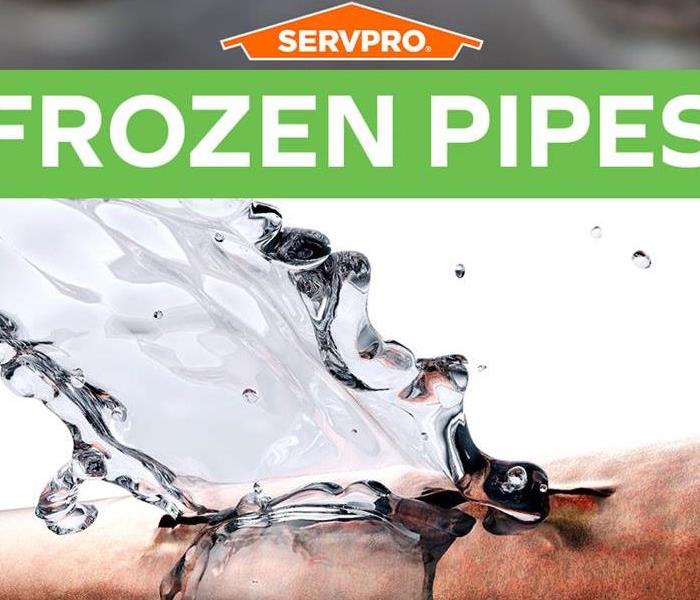 When pipes burst, SERVPRO of Bradley County is ready to respond and to make it, "Like it never even happened."
When pipes burst, SERVPRO of Bradley County is ready to respond and to make it, "Like it never even happened."
Cold weather is on the way. Are your pipes at risk of freezing? Let us help you get prepared with our checklist of preventative measures. But remember, if your pipes do undergo damage this winter, we are open 24/7, 365 days a year! Even though pipes bursting can be extremely inconvenient and devastating, SERVPRO of West Knoxville will be there to help you through it and to make it "Like it never even happened."
Checklist for preventing frozen pipes
- Insulate pipes located in the attic and crawl space using pipe insulation, even if the climate where you live does not often have hard freeze conditions. You can also wrap pipes in heat tape or heat cables with thermostat control. The best pipe insulation for your situation will depend on your home.
- Drain water from the swimming pool and water sprinkler supply lines following the manufacturer's or installer's directions. Do not put antifreeze in these lines unless directed. Antifreeze is environmentally harmful and dangerous to humans, pets, wildlife, and landscaping.
- Disconnect garden hoses from outdoor faucets. Even frost-proof outdoor faucets can burst if a hose is connected.
- Keep garage doors closed, especially if there are water supply lines in the garage.
- Open kitchen and bathroom cabinet doors to allow warmer air to circulate around the plumbing, especially if your sinks are on an exterior wall. (If you have small children, be sure to remove any harmful cleaners and household chemicals.)
- Let the cold water drip from the faucet served by exposed pipes. When the weather is very cold outside, running water through the pipe - even at a trickle - helps prevent pipes from freezing.
- Keep the thermostat set to the same temperature both during the day and at night. By temporarily suspending the use of lower nighttime temperatures, you may incur a higher heating bill, but you can prevent a much more costly repair job if pipes freeze and burst.
- Leave the heat on in your home. If you will be going away during cold weather, set the thermostat to a temperature no lower than 55° F.
Was this helpful? Leave us a review to let us know!
https://www.wereyouhappy.com/with/team-cuthbertson-chattanooga
Stay Warm and Safe: Heater Safety Tips for Winter
1/8/2024 (Permalink)
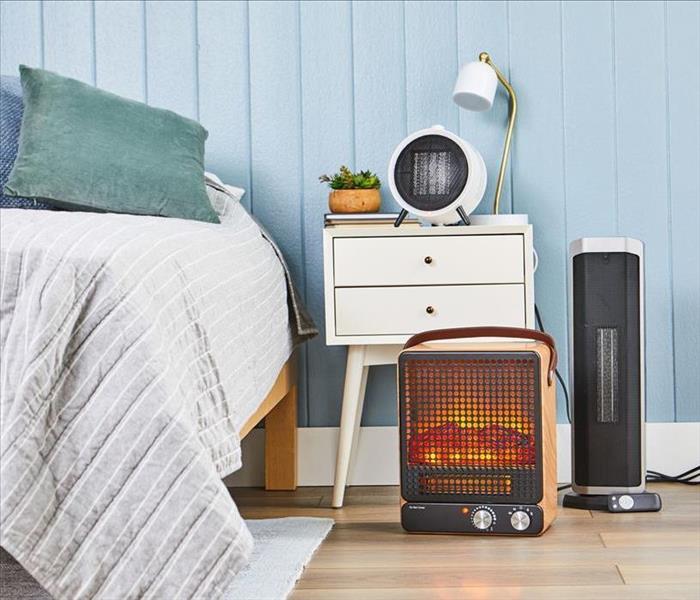
Stay Warm and Safe: Heater Safety Tips for WinterAs the winter chill sets in, many of us turn to heaters for a quick burst of warmth. But while heaters can be a lifesaver during cold snaps, it's crucial to prioritize safety when using them. Here are some key tips to keep you and your loved ones safe all winter long:
General Safety:
- Keep it Clear: Maintain a 3-foot "No-Burn Zone" around all heaters. This includes furniture, curtains, bedding, and anything else that could catch fire.
- Plug it Right: Never overload outlets. Plug space heaters directly into a wall socket; avoid using extension cords or power strips.
- Tip-Over Protection: Choose heaters with automatic shut-off features that activate if tipped over. This is especially important in homes with pets or children.
- Smoke and CO Alarms: Ensure your smoke and carbon monoxide detectors are functioning properly. Test them monthly and replace batteries as needed.
- Never Leave Unattended: Turn off and unplug heaters when leaving the room or going to bed.
Space Heater Safety:
- Electric vs. Fuel-Burning: Electric heaters are generally safer than fuel-burning models, as they don't produce carbon monoxide. However, electric heaters can still pose fire risks.
- Choose the Right Type: Select a heater with the appropriate wattage for the room size. Using an underpowered heater can cause it to overheat.
- Regular Maintenance: Inspect cords and plugs for damage before each use. Keep the heater clean and free of dust and debris.
Additional Tips:
- Consider Alternatives: If possible, use your central heating system for primary heating and space heaters for supplemental warmth.
- Dress in Layers: Wearing warm clothing can help reduce your reliance on heaters.
- Close Drafts: Seal leaks around windows and doors to prevent cold air from entering and improve heating efficiency.
By following these safety tips, you can enjoy the benefits of heaters without compromising your safety. Remember, a little caution goes a long way in preventing wintertime accidents.
Ensuring Turkey Fryer Safety for the Holidays
1/3/2024 (Permalink)
Ensuring Turkey Fryer Safety for a Happy Holiday Season
The holidays are a time for family, friends, and of course, a delicious turkey feast. While many families enjoy the tradition of deep-frying their turkeys, it is important to be aware of the potential safety hazards involved. SERVPRO, a leading provider of fire damage restoration services, is committed to helping families have a safe and enjoyable holiday season by providing turkey fryer safety tips.
Turkey Fryer Safety Tips
- Choose the Right Fryer: Always use a turkey fryer specifically designed for outdoor use. Never use an indoor turkey fryer, as they pose a high risk of fire.
- Use a Safe Location: Place your turkey fryer at least 10 feet away from any structures or combustible materials. Never operate a turkey fryer in a garage, shed, or any enclosed area.
- Keep Away from Flammables: Keep any flammable materials, such as propane tanks, gasoline, or lighter fluid, away from your turkey fryer.
- Fill with Proper Oil: Use only the recommended type of oil for your turkey fryer. Never overfill the fryer, as this can increase the risk of overflowing.
- Thaw the Turkey Completely: A partially frozen turkey can cause the oil to splatter and ignite. Always thaw your turkey completely before frying.
- Lower the Turkey Slowly: Slowly lower the turkey into the hot oil to avoid splattering.
- Never Leave the Fryer Unattended: Never leave a turkey fryer unattended while it is in operation. Always have a fire extinguisher nearby in case of an emergency.
- Dispose of Oil Properly: Once the turkey is cooked, allow the oil to cool completely before disposing of it. Never pour hot oil down the drain.
SERVPRO's Commitment to Safety
SERVPRO is committed to helping families have a safe and enjoyable holiday season by providing turkey fryer safety tips and fire damage restoration services in case of an emergency. With over 50 years of experience, SERVPRO has the expertise and resources to help you recover from a fire quickly and efficiently.
Enjoy a Safe and Happy Holiday
By following these turkey fryer safety tips, you can help prevent fires and ensure a safe and happy holiday season for you and your family. SERVPRO wishes you a safe and enjoyable holidays!
Fire Prevention for Homes and Businesses
12/12/2023 (Permalink)
If you didn't know, it's National Fire Prevention Week. As much as we here at SERVPRO are here to help clean up after fires, our priority is always to help prevent them in the first place. So, we want to share some tips with you that will help keep you and your loved ones safe.
Fire is one of the most devastating disasters that can strike a home or business. It can cause extensive damage to property and possessions, and can even lead to loss of life. That's why it's important to take steps to prevent fires from happening in the first place.
Here are some fire prevention tips for homes and businesses: Home fire prevention tips:
? Install smoke alarms on every level of your home, inside bedrooms and outside sleeping areas. Test your smoke alarms every month and change the batteries every year.
? Create and practice a fire escape plan with your family.
? Keep flammable materials away from heat sources.
? Be careful when cooking and using candles.
? Never smoke in bed.
? Have your electrical wiring and appliances inspected regularly by a qualified electrician.
Business fire prevention tips:
? Install smoke alarms and carbon monoxide detectors throughout your business. Test your alarms every month and change the batteries every year.
? Create and practice a fire escape plan with your employees.
? Keep flammable materials away from heat sources and electrical equipment.
? Be careful when using appliances and equipment.
? Have your electrical wiring and appliances inspected regularly by a qualified electrician.
How SERVPRO can help after a fire
If a fire does happen, it's important to call a qualified fire restoration company as soon as possible. SERVPRO is a leading provider of fire restoration services. We have over 2,000 franchises across the United States and Canada, so we're always nearby to help when disaster strikes.
Our team of highly trained and experienced professionals is equipped to handle all aspects of fire restoration, including:
? Emergency water removal
? Structural drying
? Smoke and odor removal
? Content cleaning and restoration ? Construction services
We work with your insurance company to make the claims process as easy and stress-free as possible. We also offer 24/7 emergency service, so you can always count on us to be there for you when you need us most.
If you have experienced a fire, contact SERVPRO today. We're here to help you get your home or business back to normal as quickly as possible. Additional fire prevention tips:
? Educate your family and employees about fire safety. Make sure everyone knows what to do in case of a fire.
? Have a fire extinguisher on every level of your home or business and know how to use it.
? Keep your fire extinguishers in good working order by inspecting them regularly and having them serviced by a professional.
? Consider installing a fire sprinkler system. Fire sprinkler systems can help to extinguish fires quickly and prevent them from spreading.
By following these fire prevention tips, you can help to protect your home or business from the devastating effects of fire.
Don't Let Frozen Pipes Ruin Your Holidays
12/19/2022 (Permalink)
The holidays are coming up. Keeping your home up-to-date is crucial to ensure that you can enjoy your holidays without any pipes bursting your bubble!
Begin the pipe burst cleanup. If any electrical outlets or equipment were disturbed, shut off electricity to the area. Use a wet vacuum or sump pump to remove any standing water and then clean, sanitize and dry any affected areas and items.
Keep in mind that an area that doesn’t dry quickly enough can develop black mold and lead to further damages to your property. To ensure the area is properly cleaned, sanitized and dried, you should work with a water cleanup company in Chattanooga, TN, that is experienced with commercial and residential pipe burst cleanup.
Our Technicians are certified in commercial and residential water damage cleanup. We are open 24/7/365 for you. Visit SERVPRO of Bradley County for more information on water cleanup.
Reopening Your Business After a Natural Disaster
12/5/2022 (Permalink)
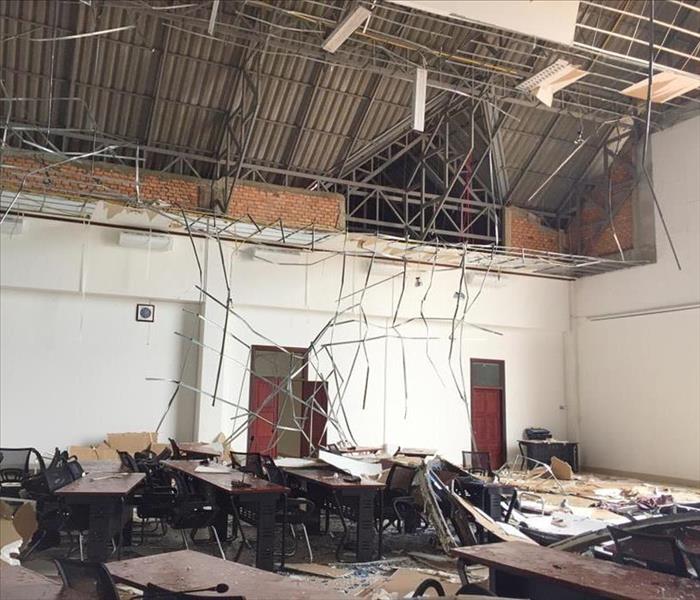 A natural disaster can be a devastating experience for any business.
A natural disaster can be a devastating experience for any business.
Opening Your Company Again Following a Natural Disaster
Natural disasters can strike at any time, and when they do, businesses need to be ready. In the aftermath of a natural disaster, many companies are understandably concerned about their employees and customers. But what about the business itself? How does a company get back on its feet after a natural disaster? The answer depends on the type of damage sustained by your business premises. Some building damage can be fixed relatively quickly, while other problems may take months or even years to resolve. This guide walks through some best practices for getting back up and running again after an earthquake or flood wreaks havoc on your city’s infrastructure—and ultimately helps keep both employees and customers happy in the process!
Have A Disaster Plan
Your business plan should include an outline of what you would do in the event of a disaster, how you would communicate with customers and suppliers, and how long it would take for your staff to get back up and running.
It can be helpful to have a template for this kind of plan in place before a disaster strikes so that you can quickly make adjustments as needed.
Call Your Insurance Company
You should call your insurance company as soon as possible to let them know that your business has been damaged. They will want to know the extent of the damage, and they will be able to tell you what kind of coverage your business has. They may also help you file claims for any damages, which can make it easier for you to get repairs done right away.
If it seems like there aren't any options for repairing or replacing equipment after a natural disaster damages your business, talk with an insurance agent about finding restoration companies in your area who can help with cleanup and rebuilding efforts so that everything is back up and running as soon as possible.
Keep Track of Your Contents
As you begin to get your business up and running, don’t forget about your business contents. You need to make sure that you have a plan for how to handle the insurance claims process in the event of a disaster. This will ensure that your belongings are accounted for and covered by an appropriate amount of insurance coverage after a natural disaster has occurred.
You should also consider having some sort of data recovery plan in place so that any lost data can be recovered quickly and efficiently after a natural disaster has occurred at your business's location. Your employees' personal effects should also be considered when working on this aspect of getting back into operation after a natural disaster has occurred.
Turn to FEMA for Help
Beginning the rebuilding process is daunting, but you can get help with FEMA. The agency provides resources for businesses in need of temporary housing, disaster loans, and other assistance after a natural disaster. FEMA also offers financial relief for businesses that were affected by natural disasters through its Small Business Administration (SBA) Disaster Loan Program.
Call a Professional for Cleanup
You should not try to clean up on your own. It is dangerous, and you could get hurt. You may damage your property and spread germs if you do not use proper safety gear, such as rubber gloves and respiratory masks. If you need to remove debris from the building, hire professionals.
You should know who is handling restoration services. This can be a contractor, vendor, or another business that specializes in disaster relief. Not only do they have the equipment and manpower to deal with the situation, but they also have a lot of experience doing so and will know what questions to ask when dealing with insurance companies and government agencies.
A natural disaster can be a devastating experience for any business, but it is important to remember that you are not alone. Many resources are available to help you get back on your feet and get back into the game of running your Cleveland, TN company. If you are unsure about what steps need to be taken next, talk with an insurance agent or someone else who has experience dealing with these types of situations before proceeding. The last thing anybody needs is more stress while trying to rebuild their lives after this terrible event! If your home or business is damaged by flood, fire, or storm, give SERVPRO of Bradley County a call!






 24/7 Emergency Service
24/7 Emergency Service



